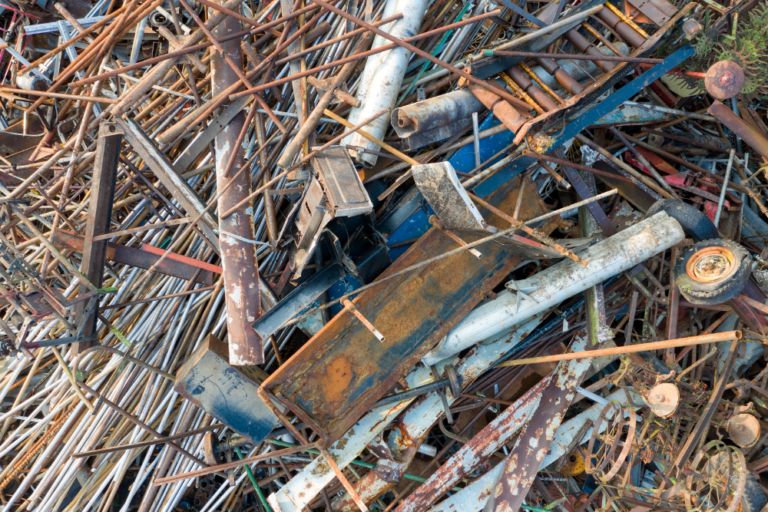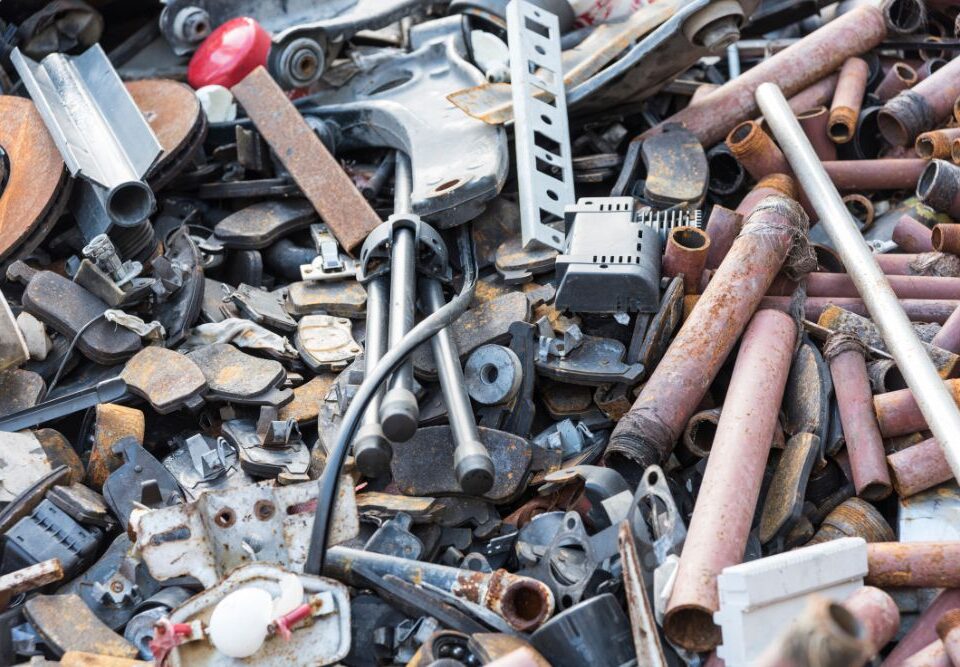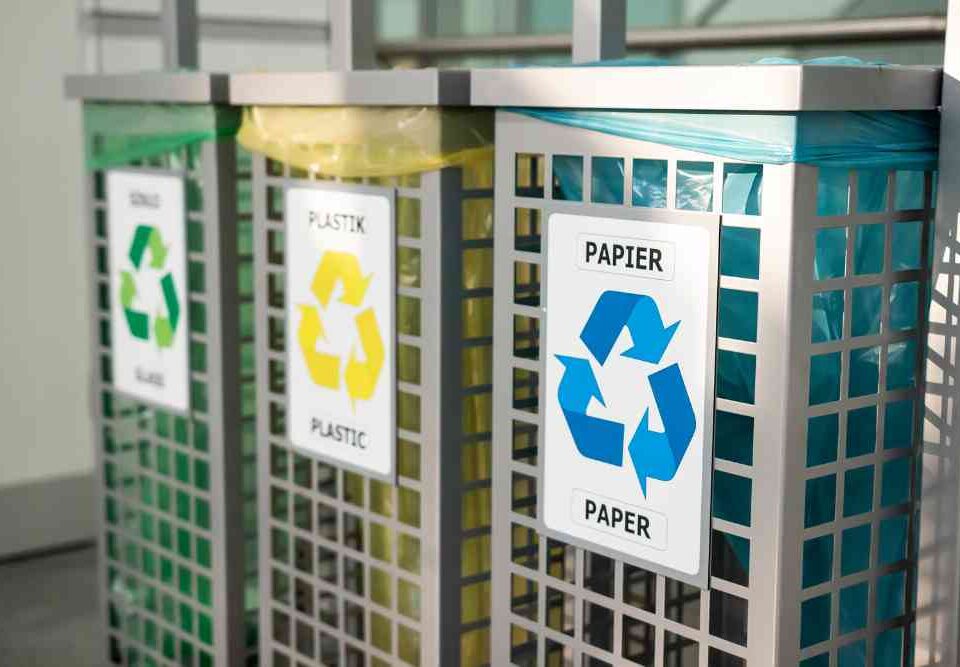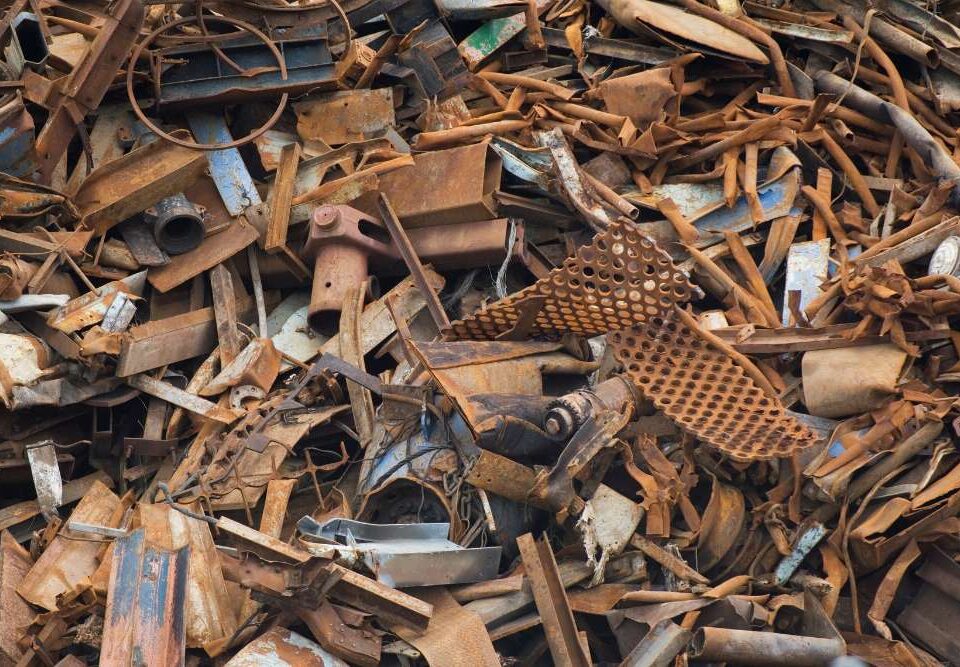
E-Waste Disposal Why You Should Never Throw Away Your Old Electronics
September 22, 2025
How to Choose a Junk Removal Service that Prioritizes Recycling
September 22, 2025How Scrap Metal Removal Helps Reduce the Amount of Waste in Landfills
Scrap metal often goes unnoticed in conversations about waste, yet it represents one of the most recyclable materials on earth. From broken appliances and old plumbing fixtures to industrial debris and discarded vehicles, scrap metal makes up a significant portion of landfill deposits. The tragedy lies in the fact that metal is endlessly recyclable without losing its quality. Proper scrap metal removal turns potential waste into reusable resources, cutting down landfill volume while conserving natural materials. By choosing responsible junk removal practices, property owners play a critical role in reducing environmental strain and supporting a circular economy.
The Environmental Burden of Metal Waste
Landfills were not designed to handle endless piles of scrap metal, yet that is where much of it still ends up. Unlike biodegradable materials, metals linger for decades or even centuries, slowly corroding and leaching harmful chemicals into the soil and water. This long-term presence creates environmental hazards while taking up valuable landfill space that could otherwise accommodate materials with no recycling alternative. Metal waste adds unnecessary pressure to already overburdened landfill systems.
Removing scrap metal from the landfill equation changes the outcome dramatically. By diverting these items into recycling channels, communities reduce the harmful environmental impact while preserving natural landscapes. Proper disposal ensures that metals can be repurposed, eliminating the risks associated with toxic runoff. Every ton of metal recycled represents landfill space saved and contamination prevented. This environmental advantage highlights why scrap metal removal is more than convenience—it is an essential step toward sustainable waste management.
Recycling Scrap Metal Conserves Natural Resources
Extracting raw materials such as iron ore, copper, and aluminum is a resource-intensive process. Mining not only consumes vast amounts of energy but also disrupts ecosystems and pollutes air and water. Recycling scrap metal offers a smarter alternative by supplying industries with already-refined materials. The energy savings are striking—recycled aluminum, for instance, requires only a fraction of the energy used to produce it from raw ore. Choosing recycling over extraction ensures fewer resources are wasted.
Beyond energy savings, recycling also limits habitat destruction and reduces the need for new mining operations. Scrap metal, once removed and properly processed, can be used in countless industries, from construction to automotive manufacturing. This cycle turns discarded items into new products while sparing natural environments from further exploitation. By emphasizing scrap metal recycling, property owners contribute to a system that balances economic needs with environmental preservation, creating value from materials that might otherwise be lost.

Scrap Metal Removal Reduces Greenhouse Gas Emissions
Every stage of metal production, from mining to smelting, contributes to greenhouse gas emissions. The carbon footprint of creating new metals from raw resources is far larger than recycling existing scrap. For example, recycling steel can cut emissions by as much as 80 percent compared to primary production. Scrap metal removal ensures that reusable materials are directed into recycling systems, where their transformation requires significantly less energy. This process directly translates into a smaller global carbon impact.
For communities striving to meet climate goals, scrap metal recycling is a critical ally. Each piece of salvaged metal represents a step toward emission reduction, cleaner air, and healthier ecosystems. Individuals and businesses alike benefit from these efforts, as lower emissions contribute to a more stable climate. By choosing eco-conscious junk removal services, property owners do more than clear space—they actively participate in the global fight against climate change, one scrap at a time.
Commercial Properties Generate Large Volumes of Scrap
Businesses often underestimate the scale of scrap metal they produce. Warehouses discard shelving, retailers replace metal fixtures, and offices clear out old electronics. Construction and demolition sites generate particularly large quantities, with beams, pipes, and wiring forming mountains of potential waste. Without a responsible removal process, this scrap usually finds its way to landfills. Commercial properties are therefore a major contributor to the metal waste problem, though they also represent the biggest opportunity for change.
Eco-friendly junk removal services help businesses handle this challenge efficiently. By coordinating bulk pickups, sorting metals, and delivering them to recycling facilities, professional crews ensure that commercial waste doesn’t burden landfills unnecessarily. This service supports businesses in meeting sustainability goals while freeing up valuable space. When companies recognize the value of scrap metal recycling, they turn what seems like junk into a resource that benefits both the economy and the environment.
Residential Scrap Metal Removal Simplifies Recycling
Scrap metal is not only a commercial issue. Homes are full of hidden metal waiting for proper disposal. Old appliances, broken lawn equipment, rusted outdoor furniture, and even worn plumbing fixtures often accumulate over the years. For many households, the challenge lies in the difficulty of transporting heavy or bulky metal items. This leads to metals being improperly discarded in general waste bins, eventually making their way to landfills.
Residential scrap metal removal services bridge this gap. By collecting items directly from homes, they eliminate the logistical challenges for families. Metals are then sorted and transported to recycling facilities where they can be reused in new products. This process allows homeowners to declutter while contributing to sustainable waste management. It also educates communities about the importance of recycling, turning routine cleanouts into small but impactful environmental actions. Household participation in scrap metal recycling strengthens the broader recycling movement.
Economic Value Created Through Scrap Metal Recycling
Scrap metal is not just waste—it is an economic resource. The recycling industry provides materials to manufacturers at lower costs than raw extraction. These savings ripple across sectors, lowering production expenses and creating opportunities for more affordable goods. Communities also benefit through job creation in recycling facilities, transportation, and resale industries. What once seemed like discarded junk becomes a cornerstone of economic activity.
Property owners who recycle scrap also contribute indirectly to stabilizing global markets. Since demand for metals continues to rise, recycling reduces dependency on international mining operations, which are often volatile and environmentally damaging. Instead, scrap metal creates a reliable domestic supply chain. This not only supports local economies but also reduces reliance on resource-heavy imports.
Safe Disposal Prevents Hazardous Contamination
Certain metals pose risks if left to corrode in landfills. Lead, mercury, and cadmium are just a few examples of substances that can seep into soil and groundwater when improperly disposed of. These toxins endanger wildlife, contaminate drinking water, and contribute to serious health issues in humans. Preventing such contamination requires careful handling and professional processing of scrap metal.
Junk removal services specializing in eco-friendly practices ensure these materials are separated and delivered to facilities capable of treating them safely. By diverting metals away from landfills, they protect both natural ecosystems and public health. This process illustrates how responsible scrap metal removal is about more than recycling—it is about preventing harm. The safe disposal of hazardous metals ensures communities remain healthier and land remains productive.
Technology Advances in Metal Recycling
The scrap metal industry is rapidly evolving thanks to advances in technology. Modern recycling plants use sophisticated machinery to sort, shred, and process metals more efficiently than ever before. Magnetic separation systems identify ferrous metals, while advanced sensors detect non-ferrous types like aluminum or copper. These innovations make recycling faster, more accurate, and capable of handling greater volumes.
Junk removal companies benefit from these technologies by ensuring that the scrap they collect has the highest chance of being reused. As facilities expand their capabilities, materials that were once considered too complex to recycle can now be processed. This progress means fewer metals are wasted and more are given a second life. Property owners indirectly support these advancements by choosing eco-friendly services.
Scrap Metal Recycling Supports a Circular Economy
The concept of a circular economy emphasizes keeping resources in use for as long as possible. Scrap metal recycling perfectly embodies this principle. Instead of following a linear path—extraction, use, disposal—metal enters a continuous loop of reuse. Items that once cluttered properties are transformed into raw materials, which in turn create new products. This system reduces pressure on the environment while maximizing the value of resources.
When property owners participate in scrap removal and recycling, they actively support this circular economy. Each recycled piece of metal extends the life cycle of a resource, creating less waste and more opportunity. Commercial and residential participation strengthens the loop, making it a standard practice rather than an exception. Over time, reliance on landfills decreases as more materials remain in circulation.
The Future of Scrap Metal Removal and Recycling
As awareness of environmental issues grows, the importance of scrap metal recycling will continue to rise. Regulations are tightening, landfill capacities are shrinking, and consumer expectations are shifting toward sustainability. These factors place greater emphasis on responsible disposal. Scrap metal removal services will likely expand their capabilities, adopting more efficient technologies and forming stronger partnerships with recycling facilities.
For property owners, this trend translates into greater access to eco-friendly services. Soon, scrap metal recycling will be less about making a conscious choice and more about following industry standards. Communities will benefit from cleaner environments, businesses will enjoy improved reputations, and the global economy will see stronger supply chains. The future of scrap metal removal is not just about managing waste but about reimagining it as a valuable resource.
Conclusion
Scrap metal removal plays a pivotal role in reducing landfill waste while protecting natural resources. By recycling metals, communities save energy, cut greenhouse gas emissions, and prevent toxic contamination. Both residential and commercial properties benefit from services that make disposal easier, safer, and more responsible. Beyond the environmental advantages, scrap recycling supports local economies and strengthens global supply chains, proving that sustainability can coexist with economic growth. For those seeking reliable solutions in Santa Rosa, CA, North Bay Junk Removal delivers professional junk removal services with an eco-friendly focus. Their team ensures scrap metal is handled responsibly, turning clutter into opportunity while preserving landfill space for non-recyclable materials. To schedule service or learn more, call 707-478-6817 today and take the next step toward cleaner spaces and greener choices.




